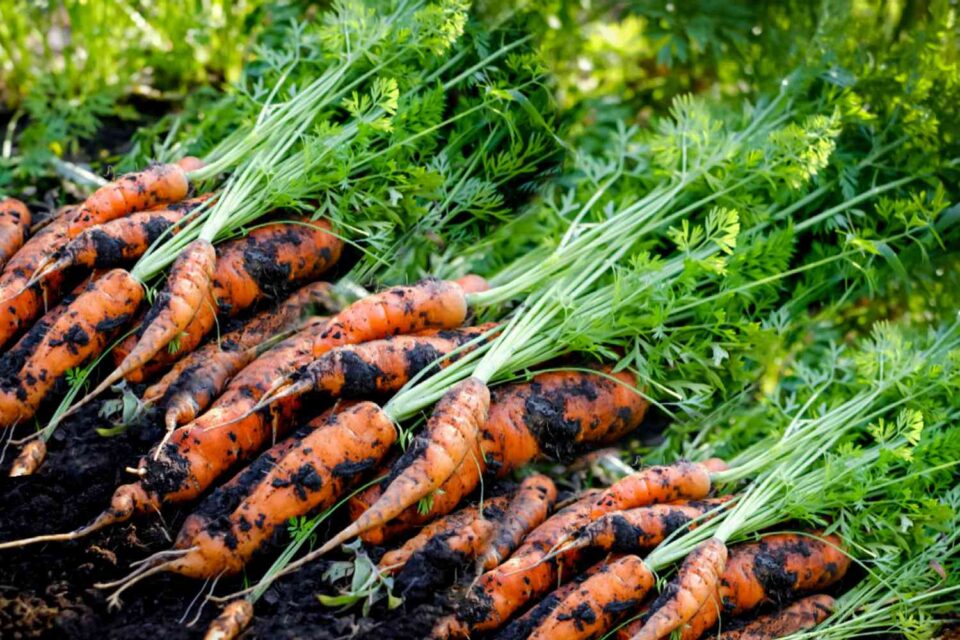Carrots may be a humble root vegetable, but they can be surprisingly tricky to grow if you don’t get the basics right. Whether you’re planting a small garden or launching a commercial venture, these 10 essential tips will help you grow healthy, straight, and sweet carrots that stand out in any market.
1. 🥕 Pick the Perfect Variety
Not all carrots are created equal! Choose your variety based on climate, soil, and market demand:
- Nantes: Sweet and crisp – great for fresh eating.
- Imperator: Long and slender – supermarket favorite.
- Chantenay: Short and thick – good for heavy soils.
- Danvers: Versatile and hardy – great all-rounder.
Want fast results? Go for early-maturing types. Got deep, loose soil? Long-rooted varieties are your best bet.
2. 🌾 Prep the Soil Like a Boss
Carrots love loose, well-drained sandy loam with a pH between 6.0 and 6.8.
- Remove rocks, clumps, and weeds – these cause twisted roots.
- Enrich with organic compost to boost nutrients and soil structure.
Healthy soil = straight carrots!
3. 🌱 Master the Art of Sowing
Carrots don’t like to be moved, so sow seeds directly into the ground.
- Plant ¼ inch deep
- Space 1–2 inches apart
- Leave 12–18 inches between rows
Once seedlings hit 2 inches tall, thin them out to give each carrot space to grow.
4. 💧 Keep It Moist – But Not Too Wet
Carrots need consistent moisture, especially early on.
- Use drip irrigation or sprinklers to avoid dry spells.
- Don’t overwater once roots form – it can cause splitting.
Think even moisture from seed to harvest.
5. 🌿 Feed Them Right
Before planting, add a balanced fertilizer like 10-10-10 or well-rotted manure.
- Avoid too much nitrogen – it grows leaves, not roots!
- Midway through growth, apply a potassium-rich boost for sweeter, firmer roots.
6. ❌ Win the War on Weeds
Weeds are carrot killers – they hog nutrients and water.
- Hand-weed or cultivate shallowly to avoid disturbing roots.
- Mulch with straw or grass to keep weeds down and moisture in.
7. 🐛 Fight Off Pests & Diseases
Watch out for:
- Carrot rust flies, aphids, and nematodes
- Leaf blight and powdery mildew
Solutions?
✅ Rotate crops
✅ Use neem oil or organic pest control
✅ Choose disease-resistant varieties
8. ✂️ Give Them Room to Breathe
Thin seedlings to 2–3 inches apart.
Too close together = twisted, undersized carrots.
Pro tip: thin when the soil is damp to avoid damaging nearby roots.
9. 🚜 Harvest at the Right Time
Most carrots mature in 70–120 days, depending on the type.
They’re ready when they’re:
✔️ Bright in color
✔️ Firm to the touch
✔️ At your desired size
Use a garden fork or gently pull them up – no yanking!
10. 🧊 Handle with Care After Harvest
- Snip off the greens immediately to keep moisture in the root
- Gently wash off dirt
- Sort by size and quality
- Store in a cool, dark, and humid space to keep them fresh for longer
🧺 Final Word
With a bit of planning and care, carrot farming can be both rewarding and profitable. Follow these steps and you’ll be pulling up perfect carrots in no time — whether you’re feeding your family or selling to a local market.


